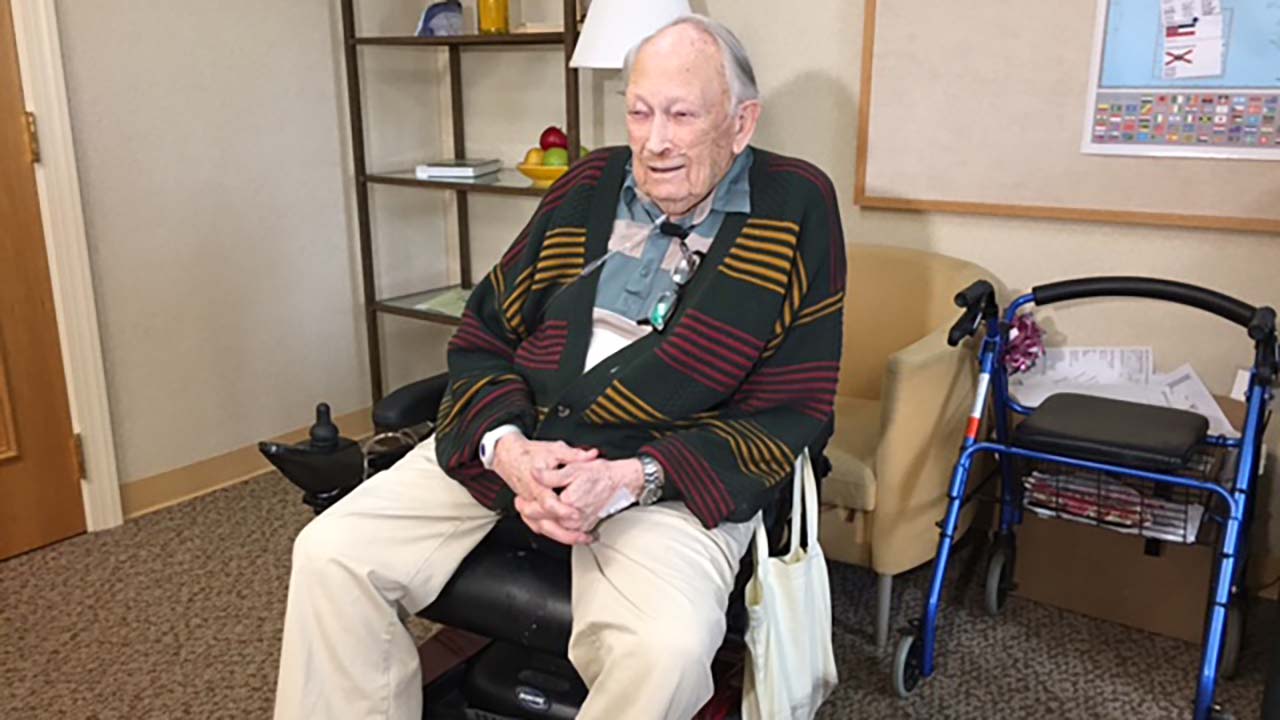Driving Program helps evaluate elderly drivers
As a former Prison Warden and Navy Veteran, 88-year-old Charles Black comes across as a take-charge kind of guy. So, it's no surprise that when his doctor and family tried to tell him to give up driving, he wanted to prove them wrong.
"After I thought about it for a little while I decided that I was going to challenge [that]. I'll take a test somewhere. I assured my kids that they would not make this decision for me," Black explained.
He admits that he had had an incident where he hit a piece of construction equipment in the parking lot of his retirement home, but he blamed that on the sun shining in his eyes. To determine whether he really was fit to stay behind the wheel, he got a referral from his doctor to visit the Duke Driving Program.
"We focus on all the areas that are important for driving. So, things like their physical mobility, their strength, their vision skills, thinking skills, and reaction times," explainedoccupational therapist Laura Juel.
As part of her evaluation, Juel administers several tests, including a driving simulation. It involves breaking or turning when suddenly prompted to do so, and it then measures your reaction time.
Caitlin Knute tries Duke Driving Simulator
However, Juel stresses that nerves and unfamiliarity with this simulator can make it tough for some patients. So, in that case she might recommend an actual road assessment. She also looks at other factors, such as medical history and health conditions, as well as basic eye tests. All of this combined helps to give her a better look at the whole picture, which is crucial to determining whether someone is safe to drive.
"Someone might go to their eye doctor and they say, 'Your eyes are fine, you can drive.' But yet they have a memory problem and their memory doctor has concerns," she explained.
And while they don't take licenses away or make recommendations to the DMV, the Duke Driving Program does educate both the patient and their family members about their findings. In Charles Black's case, that meant explaining to him that he had a vision condition called "Contrast Sensitivity."
"The driving instructor found, she showed me two photographs one very clear, and it looked very clear. The other one was foggy or hazy, and she said 'every time you open your eyes, that's what you're looking at.' And that brought back to mind the overhead signs on the freeway, they are hazy when I'm looking at them," Black admitted.
And so, it was then that Black learned he was no longer fit to drive, something he accepted with a little reluctance, and anger.
"Yeah, fighting mad! But it was a waste of time thinking that way," Black said. "And also I'd rather spend the rest of my life knowing that I haven't done some harm to somebody or some child. And that's a good possibility. Something like that might happen if you can't see when you're behind the wheel."
Juel says it's common for older drivers to be upset at the prospect of giving up driving, because it's tied in with their sense of independence. But, she says by sitting down and explaining the medical reasons behind this that can often help soften the blow, as was the case with Black.
She also advises adult children and caregivers initiate the conversation with an older driver before an accident occurs. She suggests using a story you might see on the news involving an elderly driver as a starting point for a conversation, or asking a doctor to address concerns at a check up appointment. And, in the cases where a person needs to give up driving because of memory issues, she offers families strategies such as making sure that the car is not parked in the driveway where that person can see it, making it a constant reminder and source of agitation.
To visit the Duke Driving Program you do need a doctor's referral. For more information: http://sites.duke.edu/ptot/outpatient-services/driving-evaluations/







